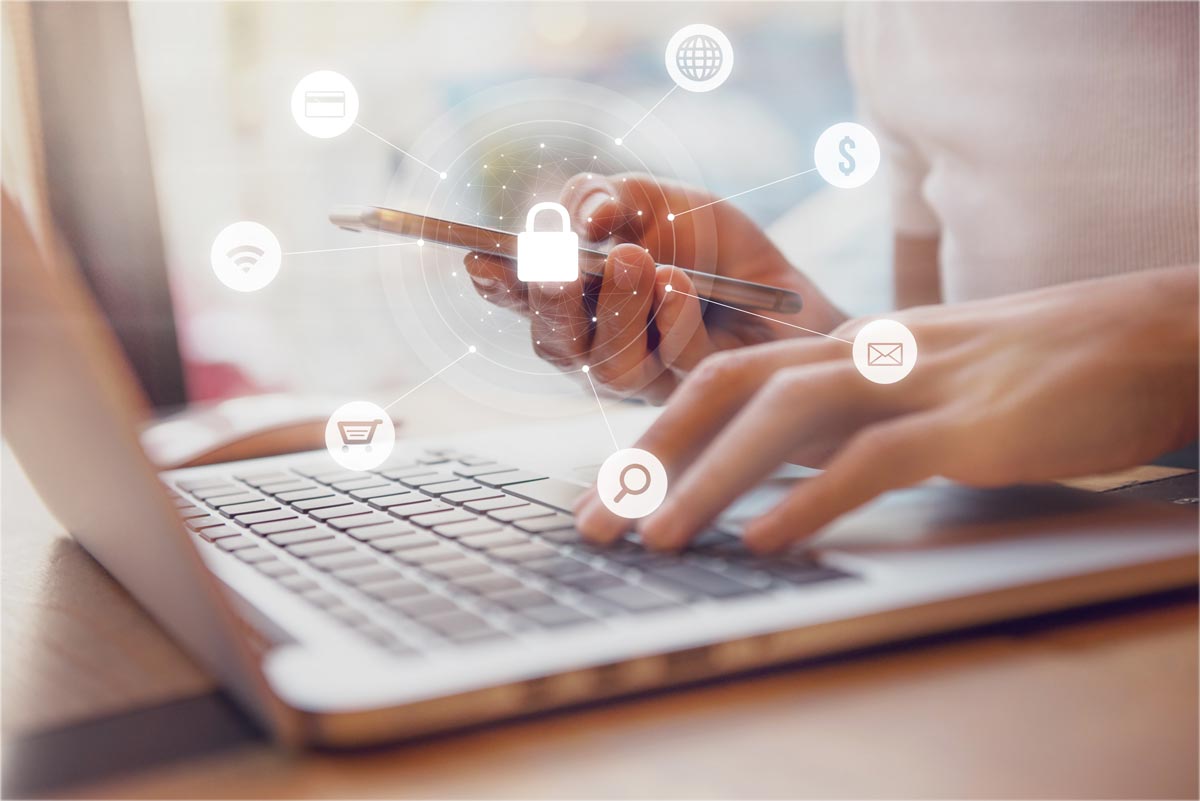A compromised computer can put you at risk for money loss, phishing scams or even complete identity theft. Read on for steps you can take to keep yourself safe online.
Avoid fake sites
If you’re browsing a site you don’t usually use, ask yourself these questions to make sure it’s safe:
- Does your browser warn you against visiting the site? Your browser’s warnings are based on actual data and user reports.
- Is the web text riddled with grammar mistakes and typos? If a site looks like it was written by a second-grader, leave.
- Is the site secure?Only visit sites with an “https” and not just an “http” in the address bar.
- Does the digital footprint check out?Google the company’s name to see what’s being said about them.
- Is there a legitimate “Contact us” section? There should be an authentic physical address and phone number for the business.
- Is there an excessive number of ads? If a website is practically covered in ads, it’s likely a fake.
- Check the shipping and return policies. If you can’t find this information, the site is probably bogus.
- Is the URL authentic? When redirected to another site, check the new URL to see if it matches the original company.
Practice password safety
It’s the key to your online life – keep it safe! Here’s how:
- Use a password generator. It’s best to use a password generator like 1Password or LastPass. These services will generate a super-secure password for every site you visit.
- Change your password. If you’d rather not use a password generator, change your passwords every 30-40 days.
- Never double passwords. Use a unique code for each site and service you use.
- Use strong passwords.Choose passwords that include a mixture of capitalization use, numbers, letters and symbols.
Update your browser
Perhaps the most important step of internet safety is keeping your browser updated. With just one click, you’ll increase your browser’s security and improve your computer by making it faster and compatible with more websites.
Above all else, an updated browser will provide better security. Internet companies are constantly looking for ways to protect you and keep you safer; take full advantage of their efforts by always using the latest version.
An updated browser offers stronger protection against the most recent scams, phishing attacks, viruses, Trojans, and more. Newer browsers have also patched up security vulnerabilities that may be present in your older browser.
Updating your browser is super-easy and super-quick. Late model computers will update automatically as soon as new iterations are released to the public. If your computer is a little older, you can choose the “auto-update” feature available on some browsers for the same results. Otherwise, you can update your browser manually by following the instructions on your browser. These are typically easy to follow and take just a few clicks.



